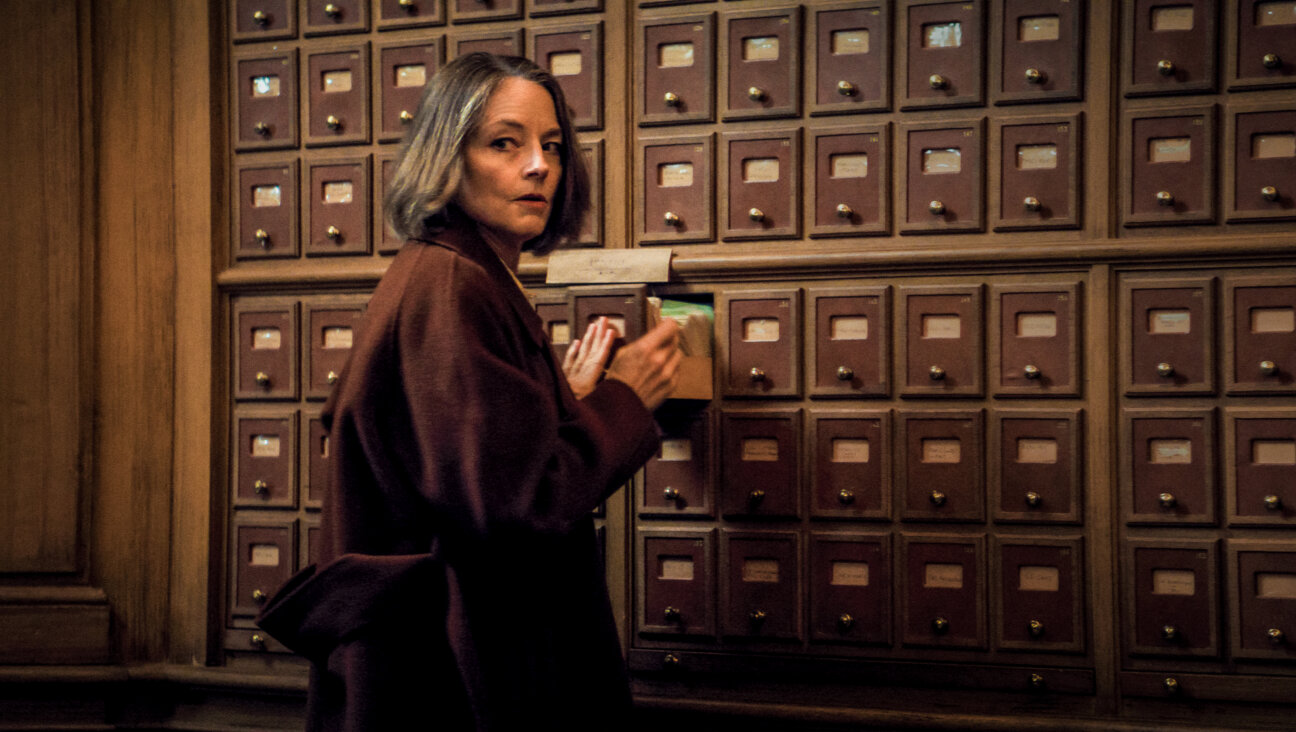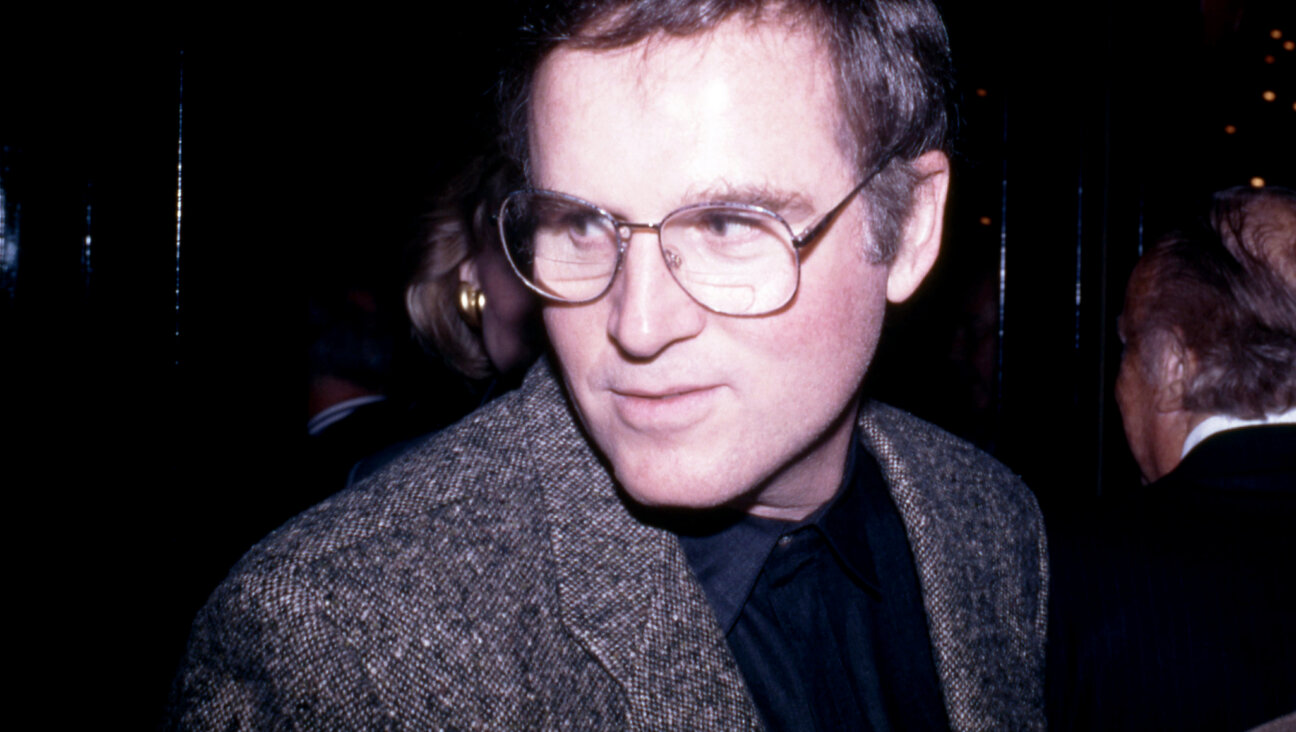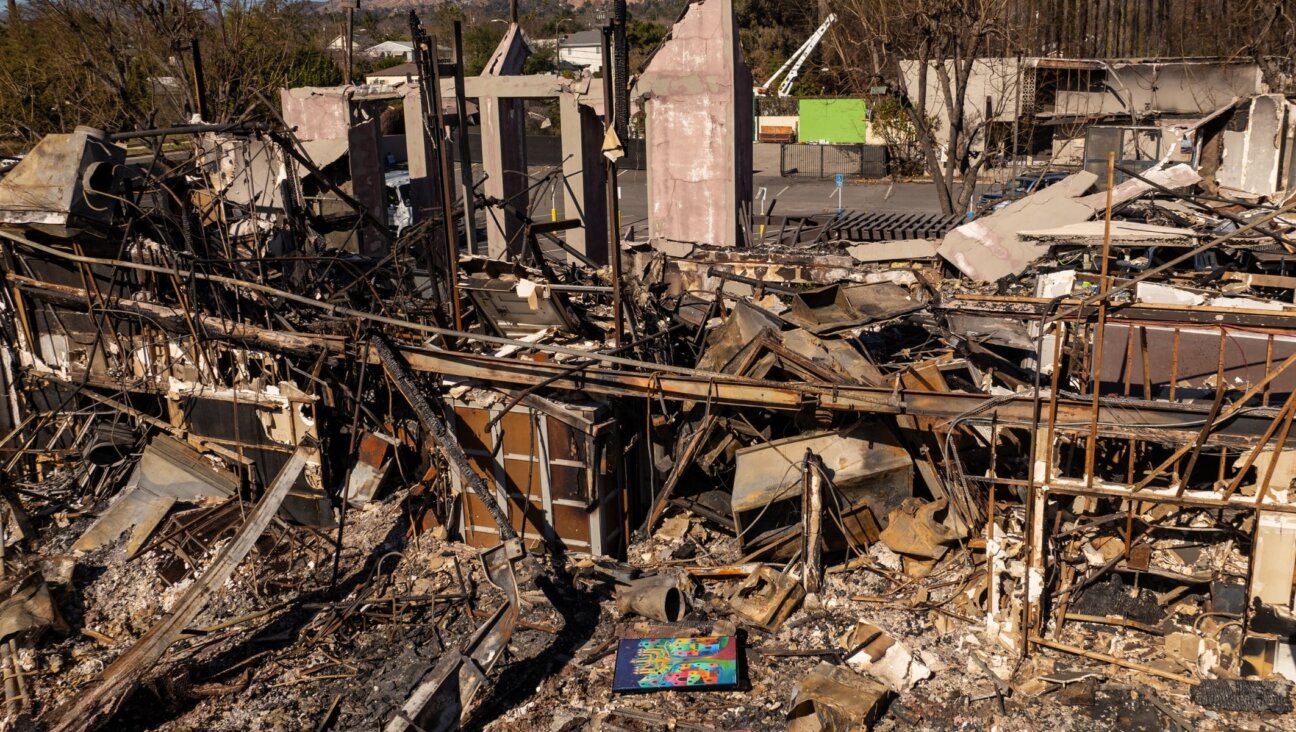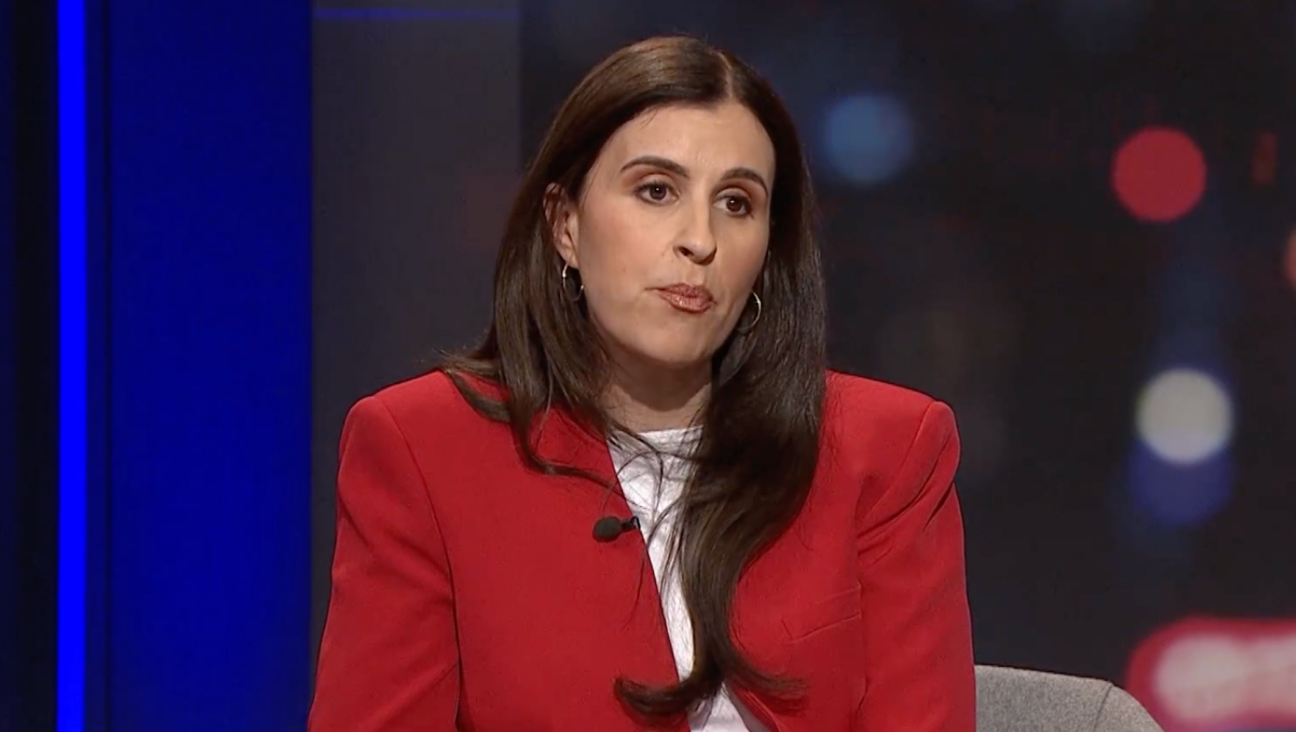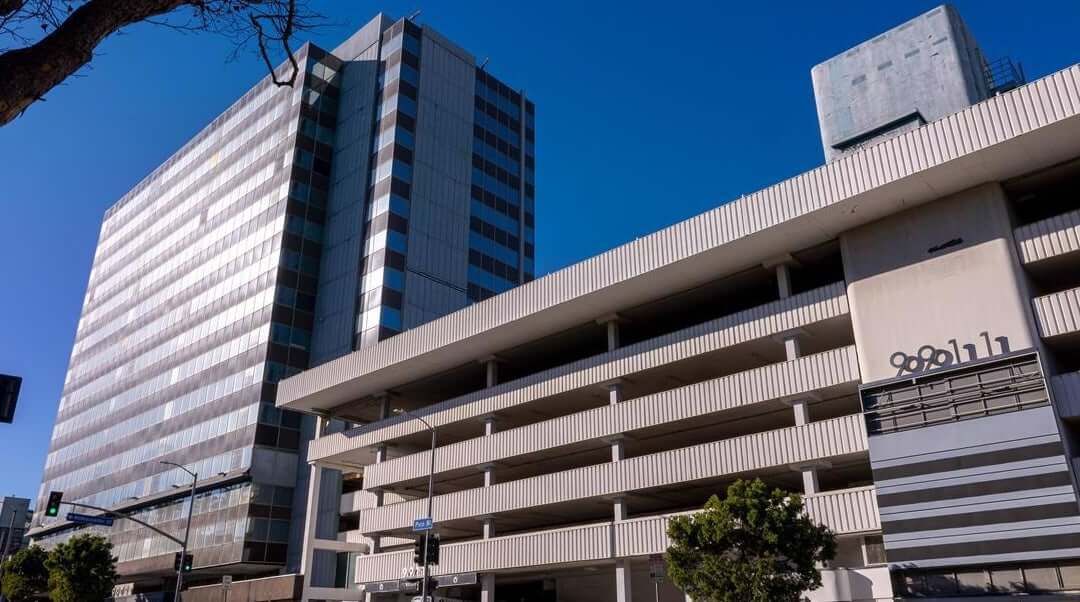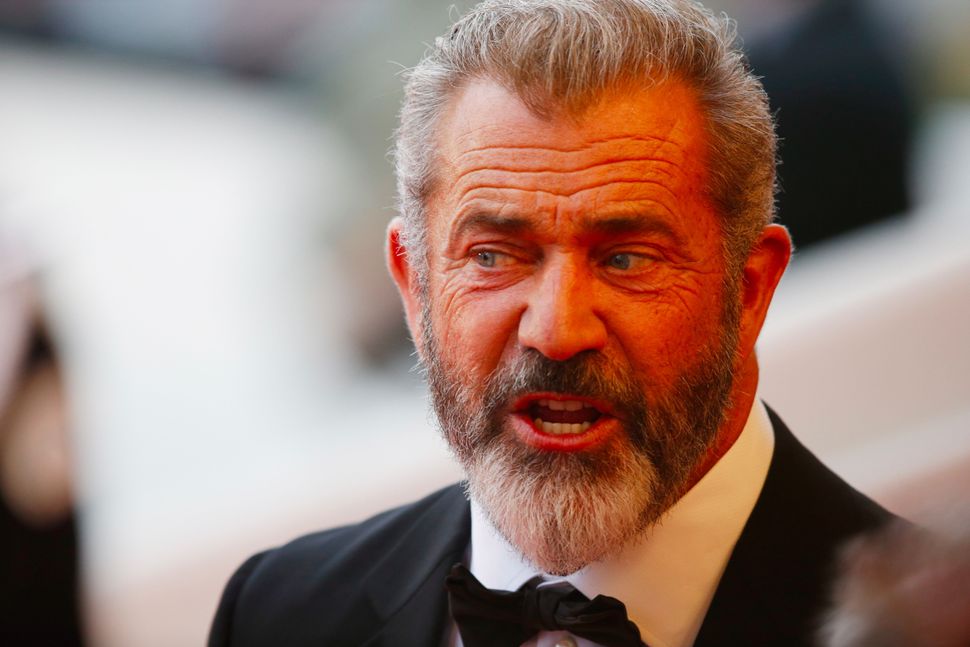
Mel Gibson Image by Getty Images
Few things in life are certain, but among the constants are death, taxes and revelations about Mel Gibson’s anti-Semitism.
The latest news on this front is actually quite old, stemming from a Hollywood party in or around 1996. On June 21, 2020, Winona Ryder repeated an anecdote she first made public in 2010, telling the Sunday Times that Gibson asked if she was an “oven dodger.”
“She lied about it over a decade ago, when she talked to the press, and she’s lying about it now,” Gibson’s representative told The Hollywood Reporter. “Also, she lied about him trying to apologize to her back then. He did reach out to her, many years ago, to confront her about her lies and she refused to address it with him.”
On June 23, 2020, Ryder maintained that she remembered the interaction clearly. “I believe in redemption and forgiveness and hope that Mr. Gibson has found a healthy way to deal with his demons, but I am not one of them,” Ryder said in a statement to The Hollywood Reporter. “Only by accepting responsibility for our behavior in this life, can we make amends and truly respect each other.”
But will Gibson make amends? Has he tried in the past? Why do we keep talking about this and what, if any, efforts has he made to improve?
Because we seem to return to this topic like clockwork, we’ve compiled a handy guide to Gibson’s long and sordid history of anti-Semitic remarks — including other alleged instances of that loathsome “oven dodger” slur — along with his many fumbled efforts at a mea culpa.
January 3, 1956: Mel Colmcille Gerard Gibson is born in Peekskill, N.Y. to Anne Reilly and Hutton Gibson. His father, a World War II veteran, was a Catholic fundamentalist who believed the Second Vatican Council — which modernized the church — was a “Masonic plot backed by the Jews.” Decades later, in the lead up to the release of “The Passion of the Christ,” Hutton Gibson is interviewed by radio host Steve Feuerstein and claims that “most of” the Holocaust was “fiction;” that Holocaust museums are a “gimmick to collect money;” and that there were more Jews in Europe after World War II than before.
In or around 1996: Ryder and her friend, the make-up artist Kevin Aucoin, who is gay, are at a crowded party with Gibson, who is smoking a cigar. Ryder claims that Gibson asks Aucoin “Oh wait, am I gonna get AIDS?” At some point, Jews come up in conversation and Gibson allegedly asks Ryder “You’re not an oven dodger, are you?”
August 2003: Before the release of “The Passion of the Christ,” former New York Assemblyman Dov Hikind leads around 50 Jews to the Fox News offices in Manhattan to dissuade 20th Century Fox from distributing the film, claiming its content suggests that Jews as a people bear collective guilt for the death of Christ.
“It will result in anti-Semitism and bigotry. It really takes us back to the Dark Ages,” Hikind says. Fox passes on distributing the film.
February 2004: After reviewing an advanced script for “The Passion of the Christ,” the ADL and the U.S. Conference of Catholic Bishops issue a statement calling the screenplay “one of the most troublesome texts, relative to anti-Semitic potential, that any of us had seen in 25 years.” The plot, they write, depicts Jesus as being “relentlessly pursued by an evil cabal of Jews” who pressure Pontius Pilate to sentence him to death. The readers also note that the idea that a Jewish campaign was responsible for Christ’s crucifixion was rejected by the Catholic Church through Vatican II. (Well, we know what Gibson’s father thought of Vatican II.)
February 25, 2004: “The Passion of the Christ” is released in theaters. Many critics note that the portrayal of Jews as grotesque, hook-nosed pharisees is deeply rooted in anti-Semitic stereotypes. Caiaphas, the Jewish priest shown leading the charge against Jesus, remorsefully utters the controversial line “His blood [is] on us and on our children!” Due to lobbying by Jewish groups, the subtitle for the line is removed but the audio — delivered in Aramaic — remains in the film.
Gibson tells The New Yorker he included the line, which intimates that the Jewish people share collective guilt for Jesus’ death, because “I wanted it in. My brother said I was wimping out if I didn’t include it. But, man, if I included that in there, they’d be coming after me at my house. They’d come to kill me.”
When challenged about how the film would be received by Jews, Gibson says in multiple interviews that his film is simply telling “the truth.”
December 2005: It’s announced that Gibson, seeking to repair his reputation with the Jewish community, is developing a Holocaust miniseries for ABC. The series is never made.
July 2006: L.A. County Sheriff’s Deputy James Mee pulls Gibson over on the Pacific Coast Highway. After informing Gibson, who is drunk, that he will be detained, the actor says, apropos of nothing, “F—-ing Jews… The Jews are responsible for all the wars in the world,” before asking Mee, “Are you a Jew?” (Mee is.)
Gibson’s publicist, Alan Nierob, issues a statement from Gibson to The New York Times. “I acted like a person completely out of control when I was arrested, and said things that I do not believe to be true and which are despicable,” Gibson said. “I am deeply ashamed of everything I said, and I apologize to anyone I may have offended.”
Mee claims that following his encounter with Gibson, his supervisors pressured him to remove the anti-Semitic remarks from Gibson’s incident report. After complaining about those request, he says, he was subject to religious discrimination and passed up for promotions. He sues his department, finally settling a religious discrimination suit with his employer in 2012.
September 2011: It’s reported that Gibson is developing a historical epic about the life of Judah Maccabee, whose story he claims to have loved since discovering the first and second Books of the Maccabees. “I just read it when I was teenager, and it’s amazing,” Gibson tells The Atlantic’s Jeffrey Goldberg. Gibson claims to take a special delight in the cinematic potential of Macabee’s defiance of impossible odds — “The armies they faced had elephants!” — after Seleucid persecution pushed him to a point where he “just snapped.”
The ADL’s Abraham Foxman issues a statement in response to Gibson’s plans: “Judah Maccabee deserves better. He is a hero of the Jewish people and a universal hero in the struggle for religious liberty. It would be a travesty to have his story told by one who has no respect and sensitivity for other people’s religious views.”
At the same time, Rabbi Marvin Hier of the Simon Wiesenthal Center Museum of Tolerance tells The Hollywood Reporter that Gibson has “had a long history of antagonism with Jews. Casting him as a director or perhaps as the star of Judah Maccabee is like casting Madoff to be the head of the Securities and Exchange Commission, or a white supremacist as trying to portray Martin Luther King Jr. It’s simply an insult to Jews.”
April 11, 2012: Warner Bros. decides to pull the plug on “The Maccabees,” citing problems with screenwriter Joe Eszterhas’ script, TheWrap reports. Hours later, TheWrap runs a copy of a nine-page letter from Eszterhas to Gibson, dated April 9.
In the lengthy missive, Eszterhas accuses his collaborator of announcing “The Maccabees” film “in an attempt to deflect continuing charges of anti-Semitism which have dogged you, charges which have crippled your career,” and states that Gibson had no intention of actually making the movie. When Gibson did express a desire to make it, Eszterhas writes, Gibson said his main goal was “to convert the Jews to Christianity.”
Eszterhas accuses Gibson of having “continually called Jews ‘Hebes’ and ‘oven-dodgers’” during their work together. He claims that Gibson also called the Holocaust “mostly a lot of horseshit.” At one point, Eszterhas remembers Gibson claiming that the Torah mentioned the sacrifice of Christian babies. When Eszterhas insisted that Gibson was thinking of the “The Protocols of the Elders of Zion,” Gibson insisted “It’s in the Torah — it’s in there.”
Gibson responds to Esterhasz with a brief letter of his own, calling the majority “of the facts as well as the statements and actions” attributed to him “utter fabrications” and accuses him of only voicing his issues with his conduct after Warner Bros. rejected his script.
“Contrary to your assertion that I was only developing Maccabees to burnish my tarnished reputation, I have been working on this project for over 10 years and it was publicly announced 8 years ago,” Gibson wrote (the earliest reports of the project appear to date back to 2011). “I absolutely want to make this movie; it’s just that neither Warner Brothers nor I want to make this movie based on your script.”
October 27, 2016: While doing press for his film “Hacksaw Ridge,” Gibson says he feels “annoyed” when people mention his 2006 anti-Semitic tirade and said that it was “unfair” that he had a reputation as being prejudiced.
“I don’t understand why after 10 years it’s any kind of issue,” Gibson says on Variety’s Playback podcast “Surely if I was really what they say I was, some kind of hater, there’d be evidence of actions somewhere.”
May 2019: Deadline reports that Mel Gibson will star in a film called “Rothchild” as a character named “Whitelaw Rothchild,” the patriarch of a super wealthy New York clan whose name is a play on that of the Rothschild dynasty, a favorite target of anti-Semites. Representatives for Gibson said the project was “completely unrelated” to the real-life Jewish banking family.
January 9, 2025: During his appearance on “The Joe Rogan Experience,” Gibson claimed that Pope Francis brought a South American god to the Vatican and revealed that he planned to start filming sequel to “Passion of the Christ,” “The Resurrection of the Christ,” in 2026 with Jim Caviezal reprising his role aided by de-aging technology. Gibson claims the film is “an acid trip.”
Correction: A previous version of this article incorrectly stated that the line “His blood [is] on us and on our children,” heard in the soundtrack to The Passion of the Christ, was delivered in Hebrew. It was in Aramaic.

